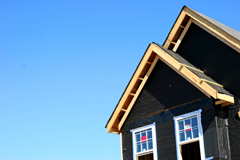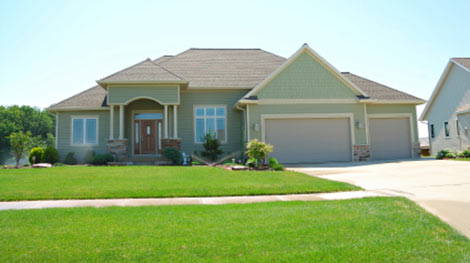Housing and Construction Defects Law
Purchasing a new home is usually the costliest long-term investment a person will make during their lifetime. Therefore, it’s vital that you know when you can seek out legal action for construction defects. The most positive outcome when you encounter a problem would be just to contact the contractor or builder, explain the defect and they will repair the issue. Sadly, this is unfortunately not always the case. 
The building of a home is a massive undertaking. This project involves various parties, so it’s not uncommon to encounter construction defects. However, when a health hazard is present, such as mold, you may require legal representation. A defect, especially one that constitutes a danger to your health, lowers the value of your home and undermines your investment.
What is a construction defect?
A defect in construction may be traced back to defective materials, a defective design and workmanship. Making the distinction between all of this causes is critical, as you will then be able to determine which person or organization is responsible for the deficiency. A housing and construction defects attorney works with you and assists you in resolving the problem.
A construction defect will include a failure of the home or building being constructed in a practical and reasonable workmanlike manner, and one that does not allow the home or building to perform in the manner that the buyer reasonably intended it to.
Some typical examples of defective construction are unevenness in floor slabs which are caused by the movement of soils, significant cracks in the foundation, leaky windows and/or roofs, improper drainage leading to moisture problems, faulty framing, corroded or damaged plumbing, slanting or bowing of floors and walls, over-stressed structures, difficulty opening doors or windows due to binding, amongst others. Any condition that makes your property unsuitable for its intended use can be considered a construction defect.
Relevant terms
Contactor: A person contracted or hired to provide supplies and perform work. A person contacted to erect houses or buildings.
Volatile Organic Compounds: These are toxins which are released by various mold types, and sometimes cause health problems and respiratory illnesses.
Construction defects types
There are many types of construction defects that can be found in a new house, or they may be found a long time after the home has been completed. Some common defects of construction materials include problems with substandard drywall causing moisture, deteriorating flashing or cracked windows. Construction problems may also arise from an inadequate design, architectural errors or absence of structural support.
A housing and constructions defects specialized attorney will help you figure out any issues that you’re having and if the manufacturing, design or obtaining of materials is accountable for the problem.
Toxic Mold
This is an especially problematic defect to have, as mold can create VOCs that may cause flu-like symptoms, headaches, severe respiratory problems, and other illnesses. Luckily, there are just a few mold strains which cause serious illness to the home occupants. Mold tends to be more present in houses that do not have adequate ventilation or were constructed with defective materials.
If you or a family member has had an illness because of toxic mold to exposure, it’s possible that you have a legitimate injury claim against some people. These might include the architects, engineers, contractors, material manufacturers or former proprietors if they did not disclose the problem before your purchasing the home.
If you are experiencing any of this issues, and are considering your legal options, we recommend finding a housing and construction defect attorney to discuss your potential claim.

